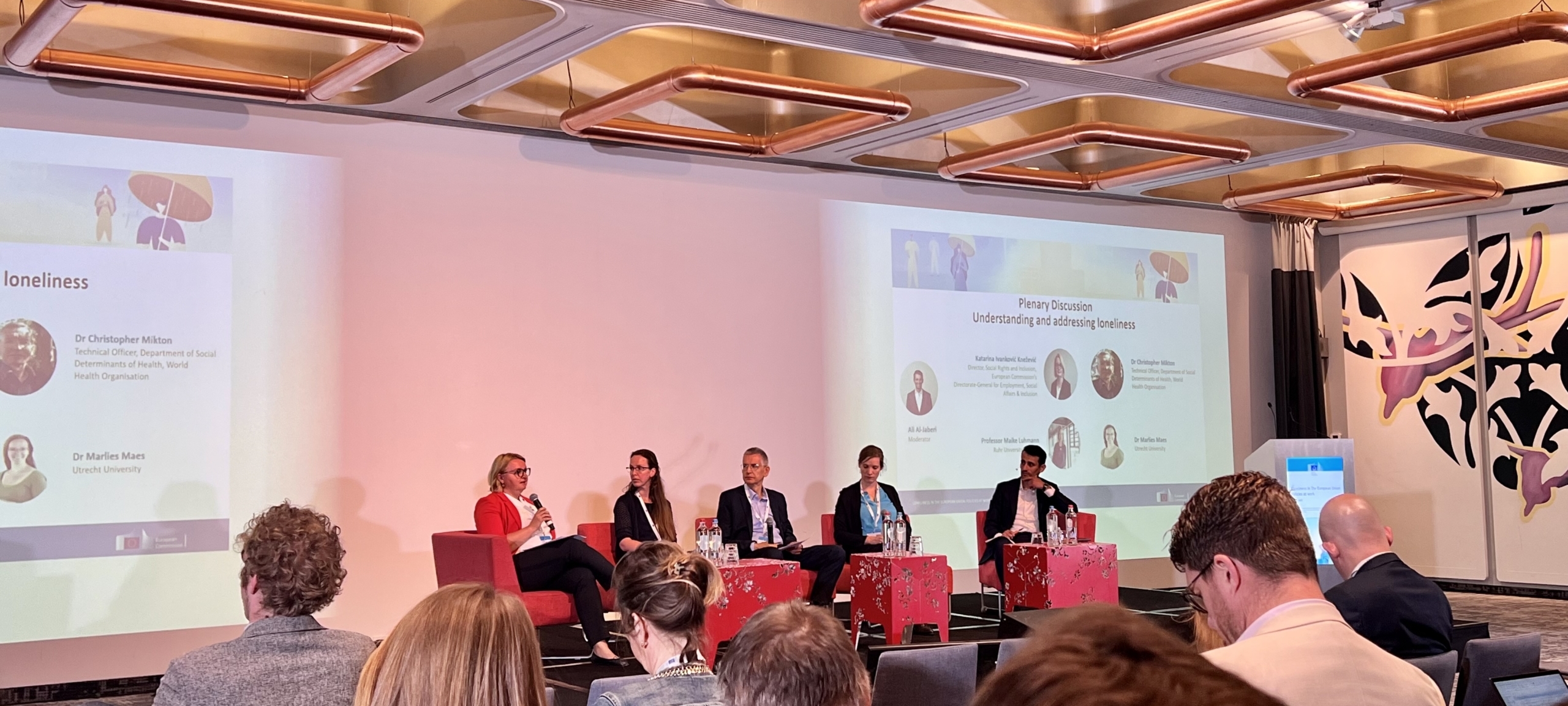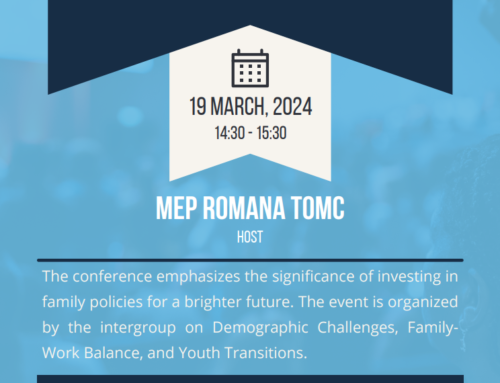8th of June 2023
On Tuesday, 6 June 2023, the European Commission’s Directorate-General for Employment, Social Affairs and Inclusion hosted a high-level conference in Brussels to mark the conclusion of the European Parliament’s pilot project on loneliness, conducted with the European Commission’s Joint Research Centre. The event brought together policy makers at EU and national level, leading academics from different disciplines working on loneliness, as well as international organisations, to promote dialogue and draw attention to an issue of societal relevance.
Ms Dubravka Šuica, Vice-President for Democracy and Demography, European Commission, in the welcome and introductory words referred to loneliness as “a societal problem and not just a personal and individual one“. Taking into account the fact that loneliness and mental health are interlinked, she mentioned the recent Commission Communication on Mental Health, which focuses on prevention policies.
Evidence-based policy was presented by Mr Stephen Quest, Director General of the Joint Research Centre of the European Commission, as well as of the “Loneliness in the European Union” project carried out by Joint Research Centre researchers. Mr Quest reported on their first EU-wide survey on loneliness, which polled 30 000 European citizens. According to the survey, “the vast majority (73%) of respondents think that individuals and families should play a major role in supporting lonely people. The most common activities respondents do to alleviate loneliness include seeing friends and family members (53%), taking time for themselves (44%), and using more social media (34%).”
The plenary discussion focused on how to better understand and combat loneliness. Katarina Ivanković Knežević, Director for Social Rights and Inclusion at the Directorate general for Employment, Social affairs and Inclusion of the European Commission, highlighted the need to invest in the youth and in the elderly in the fight against loneliness. “For young people it is important to start strong. Already from the childhood on“. She stressed the question of housing, finding the right life partner and being able to start a family. “Finally, the declining birthrate is also a consequence of loneliness“, she stated, “and therefore we need a policy that prevents lost generations.”
The three parallel sessions discussed the issue of loneliness in the context of health, society and social media. Speakers stressed the role of communities, including faith-based, in preventing social exclusion and thus loneliness. They also stressed the reality of social media when it comes to loneliness, with lonely people are more likely to turn social media, which can make them feel either more or less lonely depending on how it is used.
FAFCE called in its 2023 Spring Board Resolution “The crisis of loneliness in times of digital transition: family networks as agents of change” “for putting the human person at the centre of digital change, with a special care for the integral development of children, recognizing the primary role of families and family associations.”







